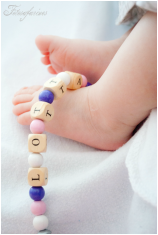Say no to say yes
Sometimes as a mother you find yourself saying yes to everyone and everything. Firstly, this relates back to our stories (see last blog). Realize what story you are telling yourself about why you need to say yes to what everyone asks you to do. Some stories could be:
- If I say no, that person will be mad at me. I can’t handle that person being mad at me or not liking me.
- I’m a helpful person, so I want to help everyone. Reality: Can I really be helpful to everyone for everything?
- People will think I’m a bad person is I say no.
There is the perception that being busy is a badge of honour. However, when we say yes to something we are saying no to something else.
Saying yes is a choice.
By focusing on the things we want to say yes to we can lose some of that guilt. When we are doing everything but at only half capacity, or we are forgetting to do things, or are constantly late (because we wanted to do just one more thing before we left the house) we tend to feel guilty or bad about ourselves (“I should be able to handle it all”). We can’t do everything to the best of our ability.
There is the saying that if you don’t prioritize your life, someone else will!
- Decide what you value. What is important in your life? What are your goals? Where do you want to put your energy?
- Let go of the story that you need to say yes to everyone and everything.
- Prioritize your current activities
- Decide what activities to continue with and which ones could be stopped or minimized.
- For future events – consciously choose what to become involved in and how to be involved.
- The overall goal is to be aware of what we say yes to and the story we are telling ourselves about our “need” to say yes.
Next action
If you are a list maker, the good news is that the research shows the benefits of making lists! By writing lists this allows our brains to think about things rather than of the things.
This can be especially useful for tasks or ideas that require multiple steps. Start by writing everything down. Then pick one item and write what the very next step would be. Each step must be the smallest next step and must be doable.
Here’s an example:
- Say one thing on your to-do list is to is to clean a closet. Your list might look like this:
- Clean closet
- Gather garbage bags (or boxes)
- Clean top drawer
- Clean second drawer
- Take all shoes out of closet
- Take 1 box from top shelf
- The list would continue like this
- Clean closet
Let me know how these tips are working for you!
If you would like to chat about further ways to get started with dealing with the overwhelm of motherhood or life in general, please call or email Heather at
heather@discoverycounselling.ca or 604-375-3010.

 RSS Feed
RSS Feed